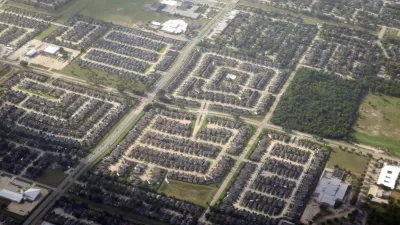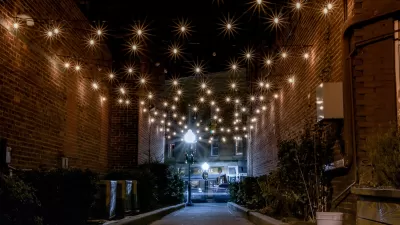Historic downtowns in Israel are struggling against the growing tide of suburban American-style shopping malls that are developing on the outskirts of town.
The development style has grown in popularity, with hundreds of shopping malls opening across the country -- mainly in suburban and exurban locations. Small businesses within the central cities are struggling to stay afloat.
"Beer Sheva, also known as the capital of the Negev and home to 186,000 Israelis, is representative of a wider trend in suburban development in Israel, which is fast becoming the California of the Middle East in terms of commercial real estate. Until the 1990s, the Israel Land Administration locked away nearly all non-urban land as agricultural, with stiff restrictions for building on it. But after a million immigrants from the former Soviet Union arrived that decade, the ILA softened the rules. By 2004, 121 exurbs, called "community settlements," were up and running, served by gas stations, supermarkets, and shopping centers built legally and illegally on farmland. Israel's first mall went up in a Tel Aviv suburb in 1986. Today, 145 enclosed shopping centers and malls are listed on the online directory Israelmalls.net. And mall construction may soon accelerate thanks to a controversial reform passed in early August that will sell off some 200,000 acres of state-owned land (about three percent of Israel's total area) to private developers-a likelihood that most local shopkeepers in more central urban districts aren't happy about."
Thanks to ArchNewsNow
FULL STORY: Shopping Sprawl

Study: Maui’s Plan to Convert Vacation Rentals to Long-Term Housing Could Cause Nearly $1 Billion Economic Loss
The plan would reduce visitor accommodation by 25,% resulting in 1,900 jobs lost.

North Texas Transit Leaders Tout Benefits of TOD for Growing Region
At a summit focused on transit-oriented development, policymakers discussed how North Texas’ expanded light rail system can serve as a tool for economic growth.

Why Should We Subsidize Public Transportation?
Many public transit agencies face financial stress due to rising costs, declining fare revenue, and declining subsidies. Transit advocates must provide a strong business case for increasing public transit funding.

How to Make US Trains Faster
Changes to boarding platforms and a switch to electric trains could improve U.S. passenger rail service without the added cost of high-speed rail.

Columbia’s Revitalized ‘Loop’ Is a Hub for Local Entrepreneurs
A focus on small businesses is helping a commercial corridor in Columbia, Missouri thrive.

Invasive Insect Threatens Minnesota’s Ash Forests
The Emerald Ash Borer is a rapidly spreading invasive pest threatening Minnesota’s ash trees, and homeowners are encouraged to plant diverse replacement species, avoid moving ash firewood, and monitor for signs of infestation.
Urban Design for Planners 1: Software Tools
This six-course series explores essential urban design concepts using open source software and equips planners with the tools they need to participate fully in the urban design process.
Planning for Universal Design
Learn the tools for implementing Universal Design in planning regulations.
Ascent Environmental
Borough of Carlisle
Institute for Housing and Urban Development Studies (IHS)
City of Grandview
Harvard GSD Executive Education
Toledo-Lucas County Plan Commissions
Salt Lake City
NYU Wagner Graduate School of Public Service




























